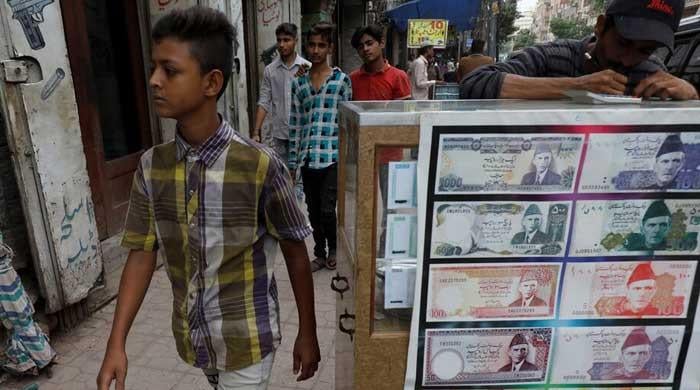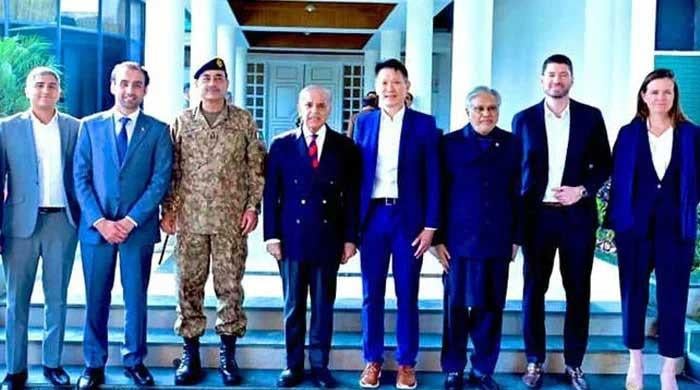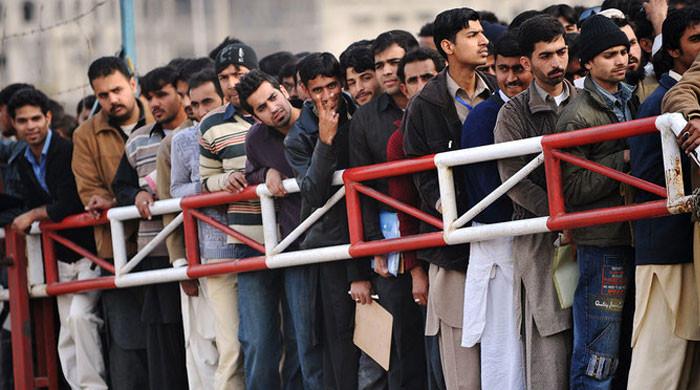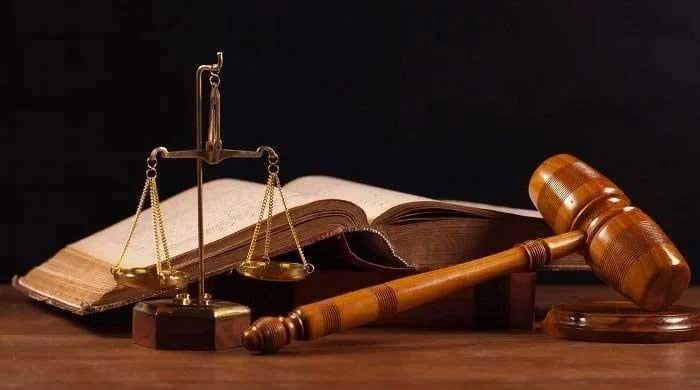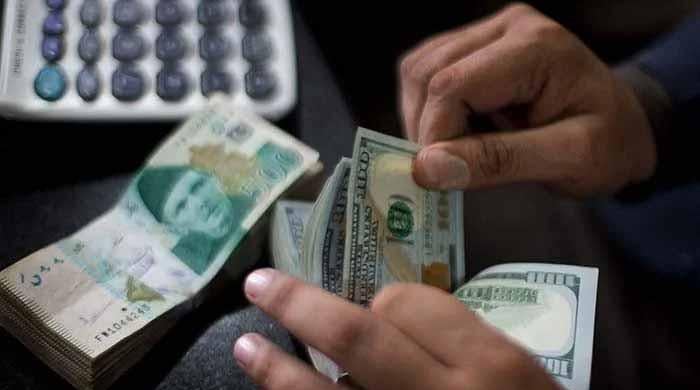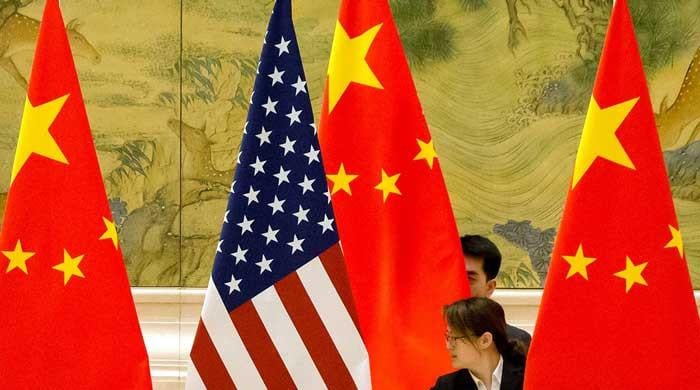76 years of political ‘mismanagement’ and counting
No wonder since this country’s birth 'uncertainty remains the only certainty'
June 12, 2023
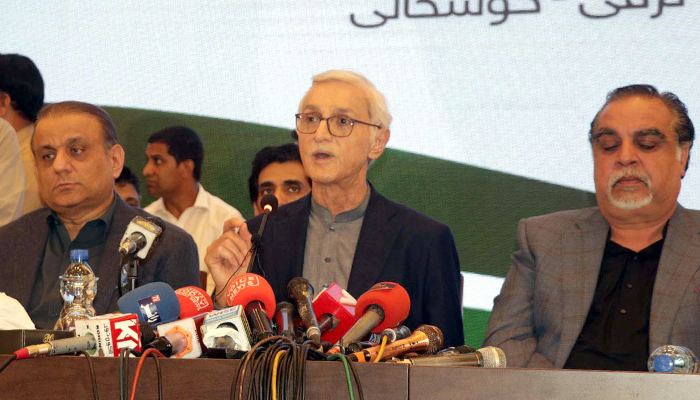
Pakistan is at a crossroads so is its politics. Today, another former Prime Minister's future ‘hangs in balance’ as history repeats itself. By far, not a single populist leader in this country has seen an honourable exit from Liaquat Ali Khan to Imran Khan.
This is a brief history of Pakistani politics.
No wonder since this country’s birth ‘uncertainty remains the only certainty.’
We are still not ready to learn from our mistakes and, ironically, repeat the same time and again. So, until and unless we stop the same old practice of making and breaking parties and governments, Pakistan's democracy will remain fragile and far from Mohammad Ali Jinnah's vision.
Just look at the fate of the past leaders and the mystery behind their exit. One was executed through a ‘judicial murder’ while two were executed, one faced a death sentence before he was sent into exile while the fate of the fifth — Imran Khan — is still undecided, but he is facing over 100 cases, including some serious ones as well as political isolation.
At least three leaders — Benazir Bhutto, Nawaz Sharif, and Imran Khan — had issues with the powerful establishments which finally resulted in their unceremonious ouster. No wonder why Pakistani politics became a victim of 'political mismanagement.
The way forward lies in the realisation and confession of the mistakes committed, but who are we going to pick as more responsible? Not only do I believe it, but history also shows that it is the ruling elite led by a powerful establishment and superior judiciary followed by a strong and corrupt bureaucracy and political nobility, mostly dominated by feudal and businessmen. Pakistan paid the price for one political experiment after another. This exercise continues as yet another ‘king’s party’ is in making to counter Pakistan Tehreek-e-Insaf (PTI) and Imran Khan.
Pakistan’s dilemma since its birth in 1947 is that it could not set its political direction after the untimely death of Jinnah, and the founding party Pakistan Muslim League (PML) disintegrated too soon as the League’s West Pakistan leadership through one conspiracy after another pushed the Bengali leadership of the party against the wall.
The tragedy of 1971 was the final outcome of what happened in the first 10 years of Pakistan. Soon the country fell into the hands of civil and military bureaucracy, and as former ISI chief, Lt. General Hameed Gul once said, “Making a sitting army chief as Defence Minister was the fundamental mistake which led to the first Martial Law and control on the political system.”
Gul, who himself has been blamed for political turmoil in the country from 1988 to 1993, even conceded that he formed an opposition alliance (IJI) before the 1988 elections to ‘check’ possible PPP’s two-third majority and stage-manage elections.
Another such admission or confession came from none other than his successor Lt. General Asad Durrani, who under oath before the Supreme Court, confessed to distributing money among the then-opposition politicians and some columnists during the 1990 elections. The case is now part of our charred political history called the ‘Asghar Khan Case’ or Mehran bank scam.
Pakistani politics is a victim of ‘doctrine,’ such as that of Field Marshall Ayub Khan, General Yahya Khan, General Zia ul Haq and Gen Musharraf, and from General Jillani’s ‘doctrine’ to General Bajwa’s doctrine.
Unfortunately, the role of the superior judiciary is unpardonable. Pakistan’s political destiny would be different had the first Martial Law been declared illegal and unconstitutional and had Chief Justice, Justice Munir, upheld the decision of the Sindh Court in favour of the Speaker of the National Assembly Maulvi Tameezuddin. Had Ayub Khan been called ‘usurper’ instead of ‘saviour’ and abrogated by the Constitution of 1956 as legitimate under the law of necessity, Pakistan would not have faced the crisis it faced, and perhaps, we could have saved the country from disintegration.
Unfortunately, it didn’t happen, and illegitimate regimes were called legitimate, which paved the way for continued interference of non-political forces in political matters. The judiciary also joined them, and as a result, the civilian set-ups and political forces became weaker and weaker with the passage of time.
Pakistan could not recover since then as Ayub Khan after usurping power introduced his own brand of political system in the name of ‘Basic Democracy’ under his own 1962 Constitution and through complete control of judiciary and media he derailed the system. What followed is nothing but charred history.
Pakistan’s mainstream political parties could not be democratised and were predominated by the powerful families or elite class; thus, ‘democracy’ became the first casualty in these parties. Thus, they failed to democratise society resulting in a leadership crisis which provided public space to non-political forces.
Pakistan’s political system also remains ‘mismanaged’ due to so-called ‘accountability’ since the days of Ayub Khan. Politicians and political parties could not recover since the day over 2,000 politicians were barred under the Public and Representatives (Disqualification) Act and Public Offices (Disqualification) Order, 1959. Many seasoned and experienced politicians ‘quit politics.’
What a dilemma that the first peaceful transfer of power from one civilian government to another took nearly 60 years in 2013 followed by another in 2018 and all this was the result of the realisation of politicians that they had been used to and thus Benazir Bhutto and Nawaz Sharif signed the Charter of Democracy, COD. Had it been enforced in letter and spirit the country would not have been plunged into yet another crisis.
Had former prime minister Imran Khan been allowed to complete his full five-year term we would have been ‘celebrating’ rather mourning Pakistan’s Platinum Jubilee and Constitution’s (1973) Golden Jubilee. It’s time to ensure free and fair elections and level-playing political field. In democracy, the only accountability is to allow people to decide who is good or bad for them.
Politicians need to learn that politics is a responsibility, not business.
Time is running out for all and we as a nation are far behind in all spheres of life. Democracy is not a system but a way of life. Do we even have democracy or a mere slogan like ‘power belongs to the people?’ All have committed mistakes and now all can correct them for the future generation before it’s too late.
The writer is a columnist and analyst for GEO, The News and Jang. Twitter:@MazharAbbasGEO




